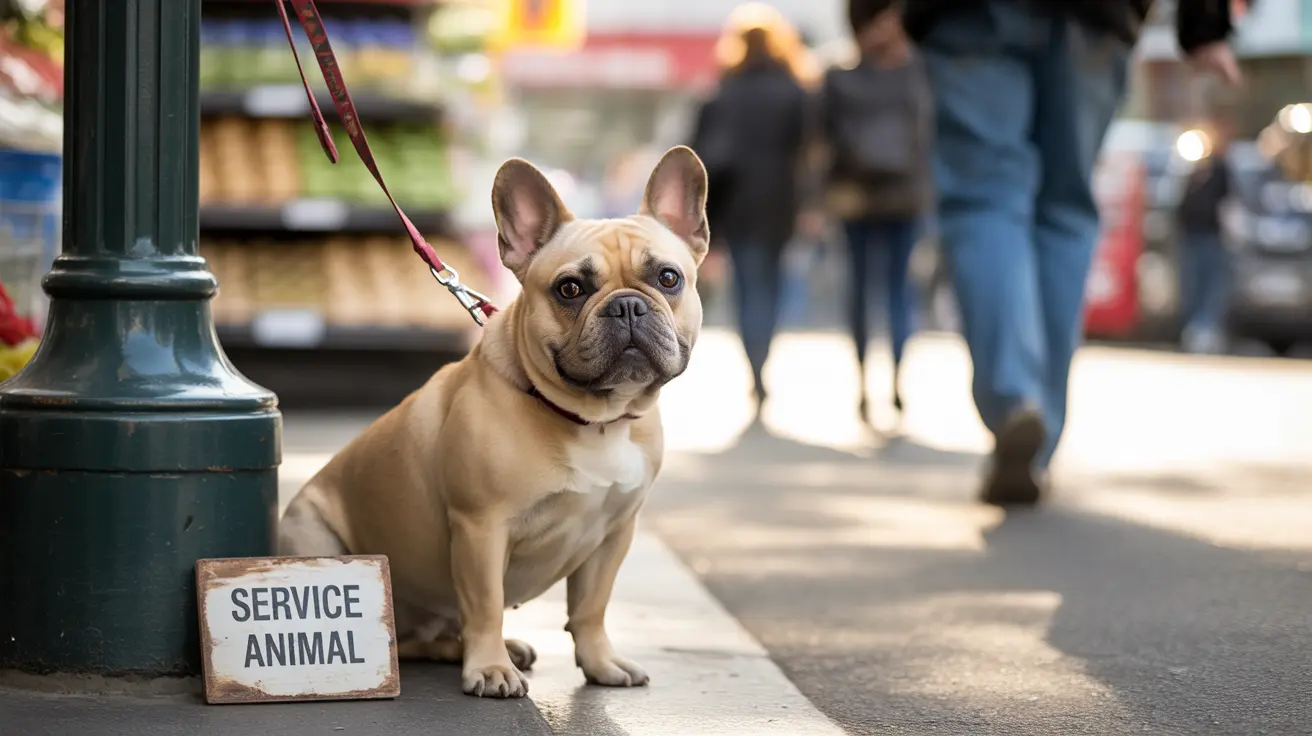Understanding Federal Regulations and Store Policies
Federal FDA regulations strictly prohibit non-service animals in establishments where food is prepared, served, or sold. This regulation exists to maintain food safety standards and prevent potential contamination.
Service animals, specifically dogs trained to perform tasks for individuals with disabilities, are the only exception to this rule. These animals must be:
- Individually trained for specific tasks
- Well-behaved and under control
- Properly housebroken
- Directly assisting their handler with a disability
Major Grocery Store Policies Explained
Popular Chains and Their Rules
All major grocery retailers maintain consistent policies regarding dogs:
- Kroger: Service animals only
- Walmart: Service animals only
- Target: Service animals only
- Whole Foods: Service animals only
- Costco: Service animals only
- Trader Joe's: Service animals only
Service Animals vs. Emotional Support Animals
It's crucial to understand that emotional support animals (ESAs) and therapy dogs do not qualify as service animals under ADA regulations. Despite providing valuable emotional support, these animals are not permitted in grocery stores.
Alternative Shopping Options for Dog Owners
While grocery stores maintain strict no-dog policies, many other retailers welcome well-behaved pets:
Pet-Friendly Retail Stores
- Pet supply stores (Petco, PetSmart)
- Home improvement stores (many Home Depot and Lowe's locations)
- Outdoor recreation stores (Bass Pro Shops, Cabela's)
- Various department stores (policies vary by location)
Shopping Solutions for Dog Owners
- Use curbside pickup services
- Shop at outdoor farmers' markets
- Visit pet-friendly shopping centers
- Utilize delivery services
Legal Rights and Responsibilities
Store employees may only ask two questions regarding service animals:
- Is this a service animal required because of a disability?
- What work or task has the animal been trained to perform?
It's important to note that it's illegal to misrepresent a pet as a service animal, and doing so can result in significant penalties.
Frequently Asked Questions
Are dogs allowed in grocery stores, and what exceptions exist for service animals?
Service animals are the only dogs legally permitted in grocery stores. These must be individually trained to perform specific tasks for people with disabilities, as defined by the ADA.
Why do most grocery stores not permit dogs inside the store?
Grocery stores prohibit dogs due to FDA regulations concerning food safety and public health. Dogs can potentially contaminate food products and create sanitation concerns in areas where food is stored or prepared.
Can emotional support animals enter grocery stores like service dogs?
No, emotional support animals are not considered service animals under ADA regulations and are not permitted in grocery stores, even if they provide valuable emotional support to their owners.
What questions can grocery store staff legally ask about a dog's service animal status?
Staff may only ask two questions: if the dog is a service animal required because of a disability, and what specific tasks the dog has been trained to perform. They cannot request documentation or ask about the person's disability.
Which types of stores typically allow dogs, if grocery stores do not?
Many retail stores welcome dogs, including pet supply stores (Petco, PetSmart), home improvement stores (many Home Depot and Lowe's locations), and outdoor recreation stores (Bass Pro Shops, Cabela's). Always check individual store policies before visiting.
Conclusion
While grocery stores maintain strict no-dog policies to comply with health regulations, there are many other retail establishments where you can shop with your canine companion. Understanding and respecting these policies helps ensure a safe shopping environment for everyone while maintaining access for those who truly need service animals.






